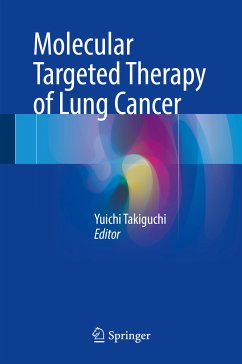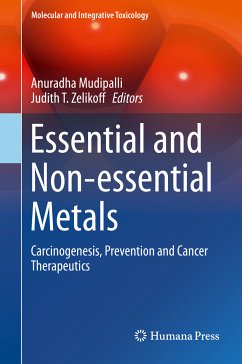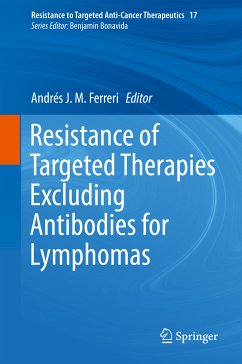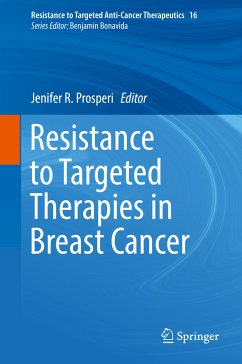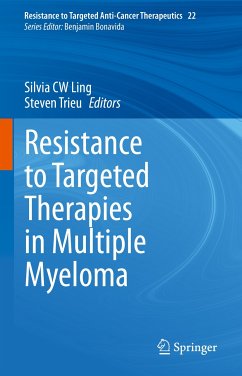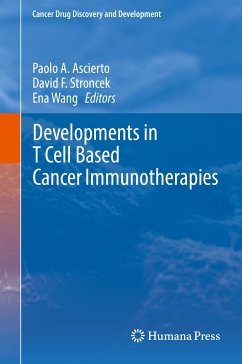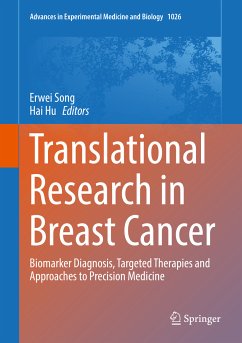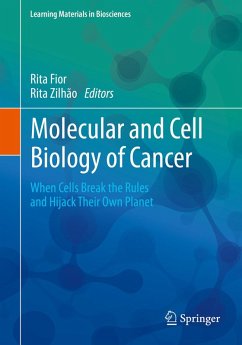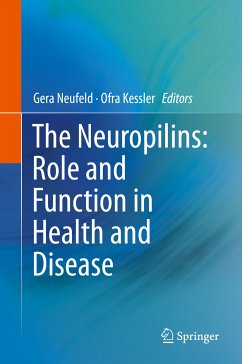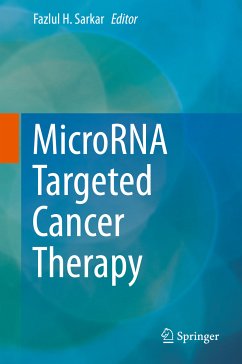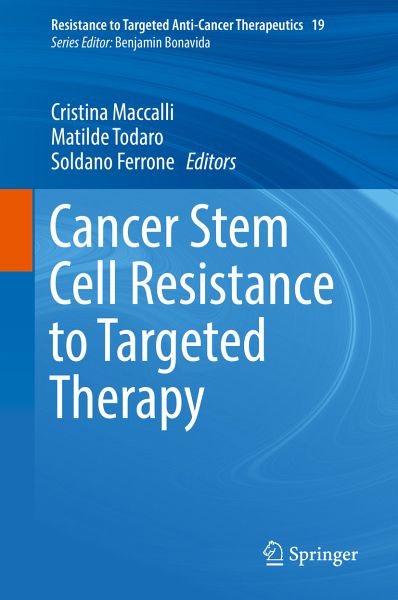
eBook, PDF
Cancer Stem Cell Resistance to Targeted Therapy (eBook, PDF)

PAYBACK Punkte
36 °P sammeln!





Cancer Stem Cell Resistance to Targeted Therapy (eBook, PDF)
Dieser Download kann aus rechtlichen Gründen nur mit Rechnungsadresse in A, B, BG, CY, CZ, D, DK, EW, E, FIN, F, GR, HR, H, IRL, I, LT, L, LR, M, NL, PL, P, R, S, SLO, SK ausgeliefert werden.
Dr. Cristina Maccalli is a Staff Scientist at the Division of Translational Medicine, Sidra Medicine, Doha, Qatar. Dr. Maccalli obtained a Master's Degree in Biological Sciences and a Ph.D. in Applied Genetics at the University of Milan, Italy. Her research interest lies in the area of immunology, tumor immunology and immunotherapy, with main focus on the functional characterization of immune responses, cancer stem cells and on the identification of biomarkers predictive of patients' clinical outcome and responsiveness to therapies. She carried out her post-doctoral research programs at the National Cancer Institute in Milan, Italy and, then, at the Surgery Branch, National Cancer Institute, NIH, Bethesda, MD, USA. Most recently, Dr. Maccalli joined the Translational Medicine Department at Sidra Medical and Research Center, Doha, Qatar, where she is involved in development of innovative studies in the context of biomarker discovery and immunotherapy. Her principle project areas are 1. the generation of chimeric receptor engineered T cells to target hematological malignancies; 2. The molecular and functional characterization of cancer stem cells isolated from colorectal and breast cancer patients and 3. the identification of biomarkers predictive of clinical outcome of patients with inflammatory bowel disease. Dr. Matilde Todaro is currently an Associate Professor, SSD MED/04, General Pathology at the University of Palermo. She is the Medical Director and Head of Endocrinology and Metabolic Disease, Intensive Metabolic Care Unit, Institute of Clinical Medicine, University of Palermo. She is also responsible for the Onco-Haematological diagnostics laboratory, Central Laboratory of Advanced Diagnosis and Biomedical Research (CLADIBIOR), University of Palermo. Dr. Todaro has contributed to cancer research by developing new anticancer therapies. Recently, her interest has been focused on the most promising and innovative biomedical research, namely, cancer stem cells and their role in the onset and progression of breast cancer. The publication of many of her studies in prestigious journals has granted her inclusion in a national and international research network. Dr. Todaro's group was one of the first to isolate and propagate cancer stem cells from tumors of epithelial origin. This advanced contribution to the scientific community led her to establish collaborations with prestigious international pharmaceutical companies such as Eli Lilly, Roche, Pfizer, Tristar, Merck and Trevigen, who have financed part of her research aimed at the development of therapies against cancer stem cells. She has supervised and mentored many graduate students and she was the tutor in charge of several post graduate and post-doctoral fellows. Recently, Dr. Todaro's scientific activity is aimed at studying the biology of breast cancer in order to identify new molecular targets that facilitate early diagnosis and to improve the treatment options against breast cancer, that nowadays are restricted to conventional therapies. Dr. Soldano Ferrone joined the Massachusetts General Hospital, Harvard Medical School as Professor in the Department of Surgery. He has held faculty positions at many Academic Institutions in the United States and at the Medical School of the University of Milan, Milan, Italy. His research program focused on the development of antibody-based immunotherapeutic strategies for the treatment of solid tumors and on the characterization of the role of defects of HLA class I antigen processing machinery as an escape mechanism utilized by tumor cells to avoid immune recognition and destruction. These studies are greatly facilitated by the large panel of HLA antigen- and human tumor antigen-specific monoclonal antibodies he has developed and shared with the scientific community over the years. He has described the results of his studies in more than 600 papers published in peer reviewed journals. He has been the editor of 14 books and the guest editor of 5 special issues of oncology journals. Dr. Ferrone has received many awards and honors. For the last 30 years he has been the member of many review committees including NIH Study Sections, and of the editorial boards of many scientific journals. He is the member of several external scientific boards.
Produktdetails
- Verlag: Springer International Publishing
- Seitenzahl: 256
- Erscheinungstermin: 4. Juni 2019
- Englisch
- ISBN-13: 9783030166243
- Artikelnr.: 56949915
Für dieses Produkt wurde noch keine Bewertung abgegeben. Wir würden uns sehr freuen, wenn du die erste Bewertung schreibst!
Eine Bewertung schreiben
Eine Bewertung schreiben
Andere Kunden interessierten sich für


